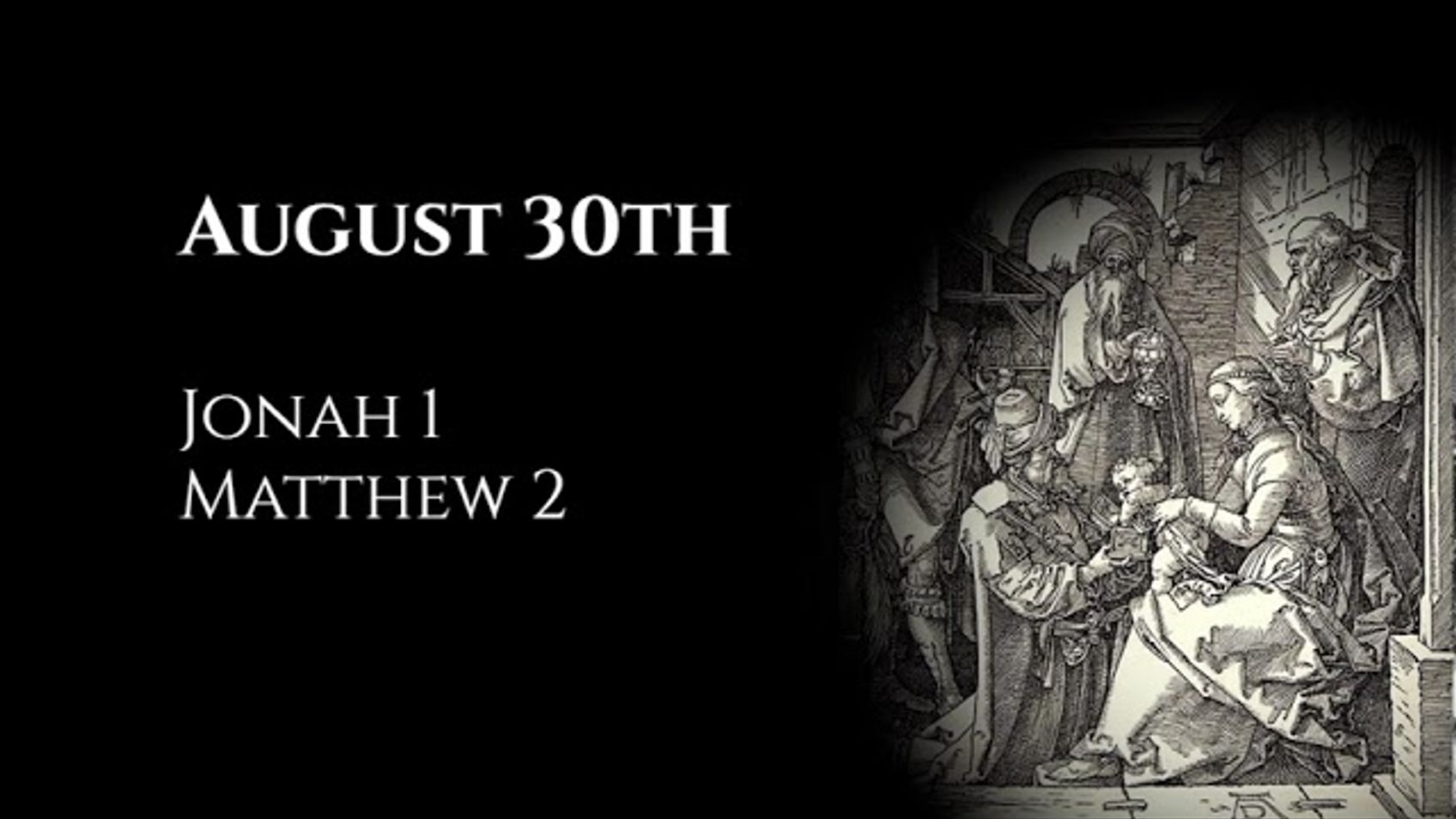August 30th: Jonah 1 & Matthew 2
August 29, 2021

Alastair Roberts
Jonah flees from the presence of the Lord. The visit of the Magi.
My reflections are searchable by Bible chapter here: https://audio.alastairadversaria.com/explore/.
If you are interested in supporting this project, please consider supporting my work on Patreon (https://www.patreon.com/zugzwanged), using my PayPal account (https://bit.ly/2RLaUcB), or buying books for my research on Amazon (https://www.amazon.co.uk/hz/wishlist/ls/36WVSWCK4X33O?ref_=wl_share).
You can also listen to the audio of these episodes on iTunes: https://itunes.apple.com/gb/podcast/alastairs-adversaria/id1416351035?mt=2.
More From Alastair Roberts
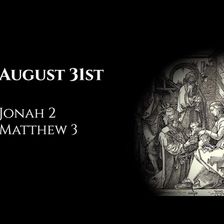
August 31st: Jonah 2 & Matthew 3
Alastair Roberts
August 30, 2021
Jonah's prayer from the deep. John the Baptist.
My reflections are searchable by Bible chapter here: https://audio.alastairadversaria.com/explore/.
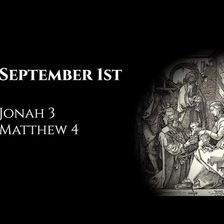
September 1st: Jonah 3 & Matthew 4
Alastair Roberts
August 31, 2021
Jonah preaches to Nineveh. Jesus in the wilderness.
My reflections are searchable by Bible chapter here: https://audio.alastairadversaria.com/explore

The Hungry Theologian
Alastair Roberts
September 1, 2021
A few days ago, I interviewed Ralph Roberts of The Hungry Theologian YouTube channel (https://www.youtube.com/channel/UCQNK_Y9aRWuRerQXSzQz2QA/). Chec
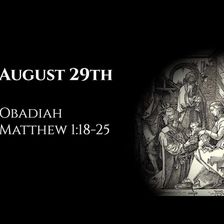
August 29th: Obadiah & Matthew 1:18-25
Alastair Roberts
August 28, 2021
The book of Obadiah. The birth of Jesus.
My reflections are searchable by Bible chapter here: https://audio.alastairadversaria.com/explore/.
If you
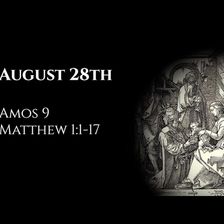
August 28th: Amos 9 & Matthew 1:1-17
Alastair Roberts
August 27, 2021
Shaking the nation. The genealogy of Jesus Christ.
My reflections are searchable by Bible chapter here: https://audio.alastairadversaria.com/explore/
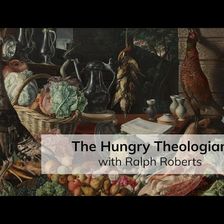
The Hungry Theologian (with Ralph Roberts)
Alastair Roberts
August 27, 2021
Ralph Roberts of the YouTube channel The Hungry Theologian (https://www.youtube.com/channel/UCQNK_Y9aRWuRerQXSzQz2QA/) joins me for a wide-ranging con
More on OpenTheo

Keri Ingraham: School Choice and Education Reform
Knight & Rose Show
January 24, 2026
Wintery Knight and guest host Bonnie welcome Dr. Keri Ingraham to discuss school choice and education reform. They discuss the public school monopoly'

Does God Really Need a “Pound of Flesh” to Forgive Sins?
#STRask
January 12, 2026
Questions about how to answer the challenge that God doesn’t need a “pound of flesh” to forgive sins but can simply forgive, and whether the claim in

How Do We Advocate for Christian Policy Without Making the Government Interfere in Every Area of Life?
#STRask
November 20, 2025
Questions about how to advocate for Christian policy without making the government interfere in every area of life, and the differences between the mo

Does Open-Mindedness Require Studying Other Religions Before Becoming a Christian?
#STRask
February 9, 2026
Questions about the claim that if Christians really want to be open-minded, they need to read and study other religions before committing to Christian

Did God Create Us So He Wouldn’t Be Alone?
#STRask
November 3, 2025
Questions about whether God created us so he wouldn’t be alone, what he had before us, and a comparison between the Muslim view of God and the Christi

What Is the Role of the Holy Spirit in Our Lives if He Doesn’t Give Us Instructions?
#STRask
February 23, 2026
Questions about the role of the Holy Spirit in our lives, advice for someone who believes in God intellectually but struggles to understand how to hav

Protestants and Catholics: What’s the Difference? With Chad Van Dixhoorn, Blair Smith, and Mark McDowell
Life and Books and Everything
November 26, 2025
How should Protestants think about the Catholic Mass? About the Eucharist? About the history and development of the papacy? In this panel discussion,

Why Are So Many Christians Condemning LGB People Just Because of How They Love?
#STRask
January 15, 2026
Questions about Christians condemning LGB people just because of how they love, how God can expect someone to be celibate when others are free to marr

Why Does the Bible Teach You How to Be a Proper Slave Owner?
#STRask
November 13, 2025
Question about why it seems like the Bible teaches you how to be a proper slave owner rather than than saying, “Stop it. Give them freedom.”
* It s

Sense, Sensibility, and Adam Smith with Jan Van Vliet
Life and Books and Everything
February 16, 2026
This year is a special anniversary for the United States as Americans celebrate 250 years of independence. But 1776 was an important year in more ways

An Invitation to the 2026 Coram Deo Pastors Conference
Life and Books and Everything
February 18, 2026
"I love being a pastor, and I love pastors, which is why I hope you will consider joining us at the Coram Deo Pastors Conference in 2026." —Kevin DeYo

Why Should We Pray If God Already Knows What’s Going to Happen?
#STRask
January 29, 2026
Questions about why we should pray if God already knows what’s going to happen, how the effectiveness of prayer is measured, and whether or not things

The Man on the Middle Cross with Alistair Begg
Life and Books and Everything
November 10, 2025
If you haven’t seen the viral clip, go see it right now. In this episode, Kevin talks to Alistair about the preaching clip he didn’t intend to give, h

Life and Ministry in Charlotte and in the SBC with Clint Pressley
Life and Books and Everything
December 15, 2025
In a rare cultural anomaly that may never be repeated in our lifetimes, the current SBC President and current PCA Moderator live in the same neighborh

Prove to Me That Jesus Is Not a Created Being
#STRask
January 26, 2026
Questions about why we should think Jesus is not a created being, and what it means to say God became fully human if part of being human means not bei
